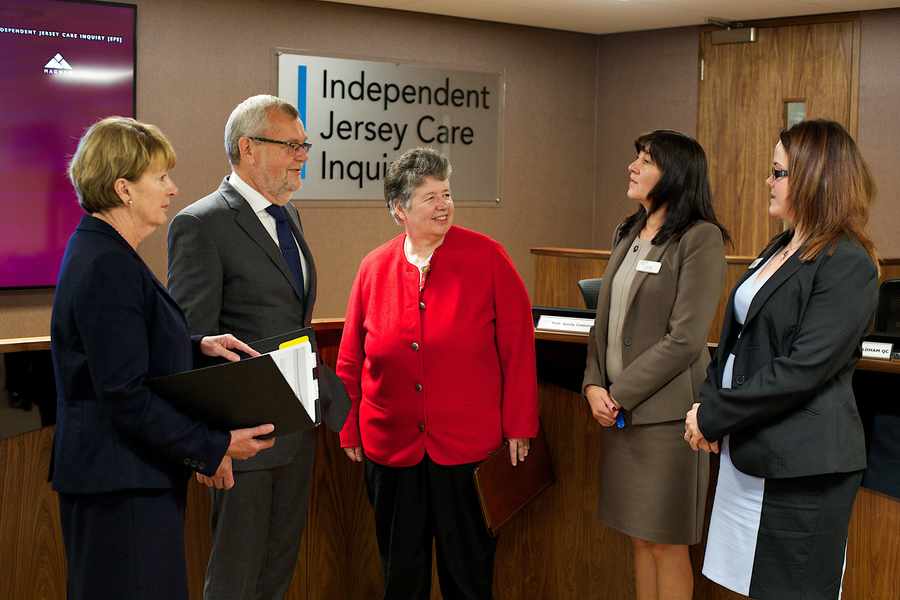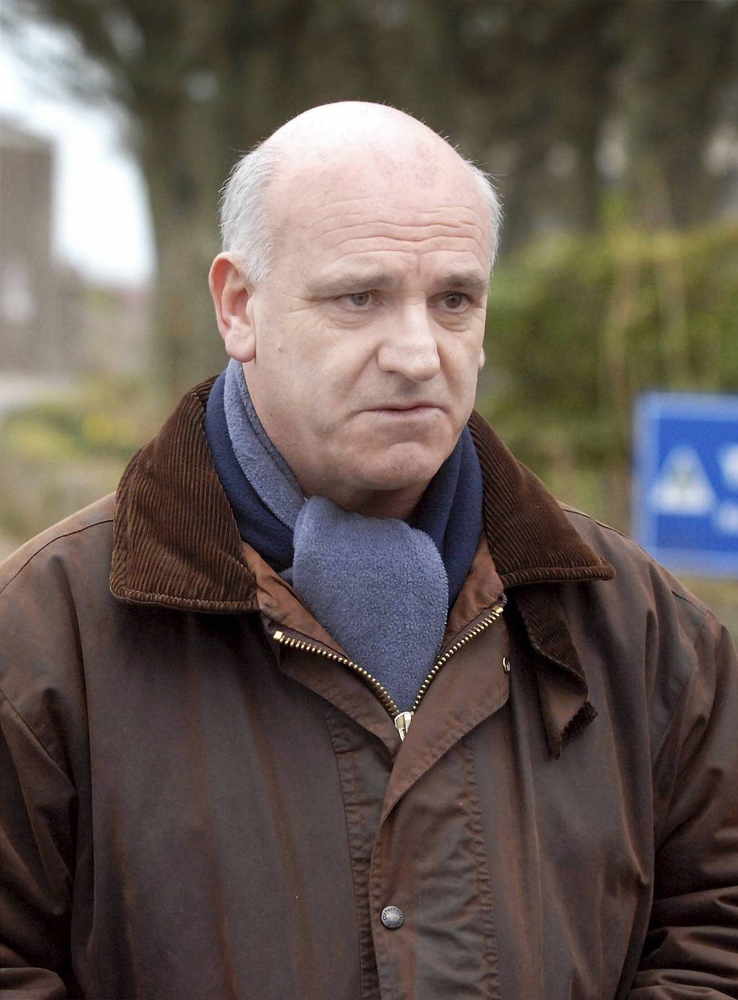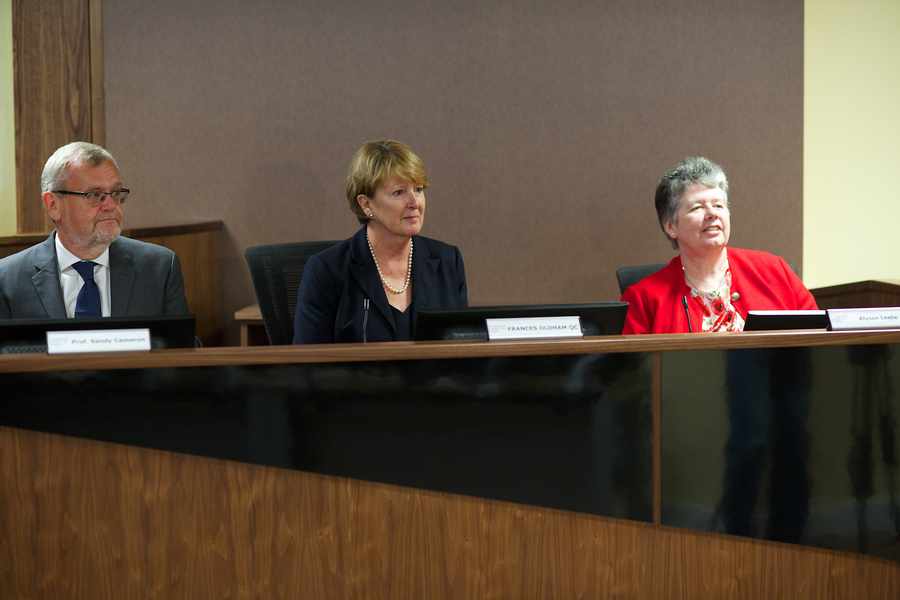With legal costs mounting every day and no end in sight for the inquiry, ministers have confirmed that they expect costs to continue growing beyond the current estimates of £20m.
The inquiry has so far received:
- 181,606 pages of documentary evidence
- 103,000 of those are from the States of Jersey
- 27,000 are from the States of Jersey Police.
- The law officers department is expected to disclose a minimum of 71,000 pages of documentation.
Treasury Minister Alan Maclean said it was currently impossible to put a figure on the final costs, but External Relations Minister Sir Philip Bailhache said that he had been advised that the final bill could be £50m or more.
And raiding States reserves or borrowing millions from external sources are both being considered as possible options should those funding concerns be realised, the Treasury Minister confirmed.
Senator Bailhache now wants to hear from Islanders if they think the inquiry – which had an original budget of £6m following estimates from independent consultants – should have a blank cheque and spend whatever is required to reach a conclusion.
This week Chief Minister Ian Gorst lodged a proposition with the States asking for an extra £14m to bring the inquiry’s budget up to £20m.
He is proposing using States reserves if necessary to cover the cost.

The move follows a series of discussions between ministers and those involved with the inquiry – which is tasked with investigating historical abuse in the Island’s care system – after it emerged that the £6m originally ring-fenced for the investigation was not going to be enough.
Ministers initially agreed to up the budget to £9m but it soon emerged that millions more would be needed.
However, Senator Bailhache, who the JEP understands is not alone in his £50m estimate, said: ‘The advice I have received is that the actual cost is closer to £50m.
‘And there is a risk that it could go higher than that. The truth is that it is actually a blank cheque and that is why it is a very difficult decision for Members to take.’
He added: ‘We have four weeks before the debate takes place and I hope that the public will help Members to make this decision. It is taxpayers’ money which is going to be spent.’
Senator Maclean, meanwhile, said he was concerned about the rising costs.
‘With all of these things it is virtually impossible to control them and so it is highly likely that the cost will rise,’ he said. ‘It can certainly go higher than where it is and that itself is a massive concern.
‘We are in an almost impossible situation. It is an enormous amount of money. We have got some really critical issues to face like health and children’s services which desperately need money and these sort of costs are really going to put a tremendous strain on public finances. The only options for funding that I can see will be the Strategic Reserve or some form of loan.’
As the Chief Minister has lodged the proposition for extra funding in his own name fellow ministers are not bound by collective responsibility and can vote against the move if they wish.
Since the inquiry started its work last summer around £7m has so far been spent, including £5.2m on the actual inquiry, including legal fees for the panel and its counsel, and £1.8m on the legal fees of States departments called to give evidence.
The Chief Minister is also proposing that the inquiry publishes details of its spending online every month and aims to present its report to the States no later than the end of next year.
He also wants the terms of reference for the inquiry to be amended to cover the period from 9 May 1945 to 3 April 2014 in an effort to control costs. Currently the inquiry is permitted to consider matters ‘up to the present day’ meaning that the time period is always growing.
Members are due to debate the proposition on 24 March.

- 2007 Towards the end of the year the then deputy police chief, Lenny Harper, announced that the States police were investigating alleged historical child abuse at former States childrens homes. An appeal for information was also launched and the investigation was overseen by police chief Graham Power.
- 2008 Arrests relating to the abuse investigation began to be made at the end of January. Later, Mr Harper, the senior investigating officer, revealed that his team was excavating the former childrens home at Haut de la Garenne and that they had found what appeared to be a fragment of bone. The announcement led to a swathe of lurid headlines in national newspapers, which carried stories of child torture and possible murder. In August Mr Harper retired and was replaced by David Warcup and towards the end of the year Mr Warcup and the investigations new senior officer, Detective Superintendent Mick Gradwell, said that after a review of the evidence gathered, no child murders took place at Haut de la Garenne. They also concluded that no bodies had been hidden or burned. At the same time police chief Graham Power was suspended for his alleged poor handling of the abuse inquiry, but a report later found that he had been removed without proper evidence of incompetence.
- 2009 In May, the fragment of material said to potentially have been part of a childs skull was sent to botanists at Kew Gardens at the request of Det Supt Gradwell. The report that followed confirmed that it was, in fact, a piece of coconut. Also, Islanders arrested and convicted of abuse offences as part of the investigation began to be sentenced in 2009 as well.
- 2010 The Wiltshire Constabularys report an independent review of the handling of the Haut de la Garenne investigation into child abuse was published in 2010. It levelled strong criticism at former police chief Graham Power and his deputy, Lenny Harper, for their handling of the investigation. The Roya l Court secured convictions against the last people involved in the abuse investigation. Following this, the victims of child abuse received a formal apology from the then Chief Minister, Terry Le Sueur, who said that they had been let down by the system. In June, 40 people who claimed they had suffered abuse while in States care made compensation claims. The year 2010 also saw a report into the financial management of the abuse investigation published in July. It found that public funds had been misspent on expensive meals, accommodation and first-class travel. It also emerged that the total police costs for the three-year investigation had reached £7.5m.
- 2011 Following a proposition brought by Senator Francis Le Gresley, the States agreed to hold an inquiry into allegations of historical child abuse after the Haut de la Garenne investigation.
- 2012 After a former Islanders book was published, making claims of abuse at the former Grouville Girls Home, the police confirmed that six women had made complaints about the home to the force during the course of the historical child abuse investigation. However, the police said that there was too little evidence in relation to the claims to mount a prosecution. 2012 also saw Jimmy Savile linked to Haut de la Garenne after pictures of the disgraced BBC star surfaced and were published in newspapers and online.
- 2013 – It was hoped that the public inquiry into historical child abuse would get going in 2013, but half-way through the year Sally Bradley QC, the States-appointed chairman of the Committee of Inquiry, suffered a stroke. The inquiry was delayed while a new chairman was found. A few months later Frances Oldham QC, a senior lawyer with extensive experience in dealing with cases involving sexual abuse, was appointed to lead the inquiry, joined by abuse inquiry panel members Alyson Leslie, who has led serious case reviews into child abuse, and Sandy Cameron CBE, a former director of social work in Scotland. In one of the last States sittings of the year, it was revealed that 64 per cent of claims for compensation for historical abuse had been settled. Chief Minister Ian Gorst said that 131 claims had been received, 84 offers of compensation had been accepted, with 47 cases still under consideration.

- 2014 In April, Ms Oldham opened the inquiry and set out the terms of reference for proceedings. Hearings began in September and so far the independent Jersey Care Inquiry has heard evidence from 150 former residents of States-run childrens homes including Haute de la Garenne, Sacre Coeur, La Preferance, and more recently, Les Chenes, plus family group homes and foster care. The inquiry has dealt with the evidence from the 1940s and is currently working on the period from the 1990s onwards.
- 2015 The Chief Minister, Ian Gorst, last week lodged a proposition with the States asking for an extra £14m to bring the inquirys budget which was originally £6m – up to £20m. The inquiry expects to have heard evidence from all witnesses who have so far come forward by early March. The inquiry will then move on to hear evidence from alleged abusers, those working in childrens homes, whistle-blowers, foster parents and Childrens Services. It will then hear evidence about the 2008 police investigation into child abuse at Haute de la Garenne, known as Operation Rectangle, and decisions made by the Law Department in respect of prosecutions following the investigation.
PUBLIC inquiries have a habit of costing millions more than estimated and, when all is said and done, leave few people happy with the result.
The Royal Commission in Australia into institutional child sex abuse is expected to cost at least £260 million and the Saville Inquiry into the deaths of 13 people on Bloody Sunday cost £195 million.
Some might think that those figures have little relevance in a Jersey context. Let’s hope they are right.
Today, Senator Sir Philip Bailhache is reported as saying that the cost of the Independent Jersey Care Inquiry could be at least £50 million, many times more than the estimate of £6 million put before the States when Members voted in favour of a public inquiry.
The States must now decide whether to cap the cost of this inquiry. They are damned if they do and damned if they don’t.
Handing over a blank cheque could wipe out savings in the Strategic Reserve which have been built up over decades. The alternative – to borrow the money – is equally unappealing for a community with an innate dislike of public debt.
Senator Bailhache wants to hear Islanders’ views on what the States should do – and whether the cost should be capped.
This is an issue which could affect all of our futures and the voice of the community should be heard.
Former Senator Francis Le Gresley was right to call for an inquiry to give victims an opportunity to tell their stories and to give the community its best opportunity to draw a line under a dark chapter in our Island’s history.
To cut the panel’s work short could be an injustice both to victims and the accused who have yet to respond to allegations.
It would also be a gift to the national media and could cause huge reputational damage to this Island.
But with a new hospital, education and an ageing population to pay for, not to mention a huge black hole in the Island’s finances, we cannot afford a blank cheque.
A workable compromise must be found to enable the costs to be capped. There is a real danger that the inquiry’s biggest legacy will simply be to line the pockets of lawyers – and that is in no one’s interest.







